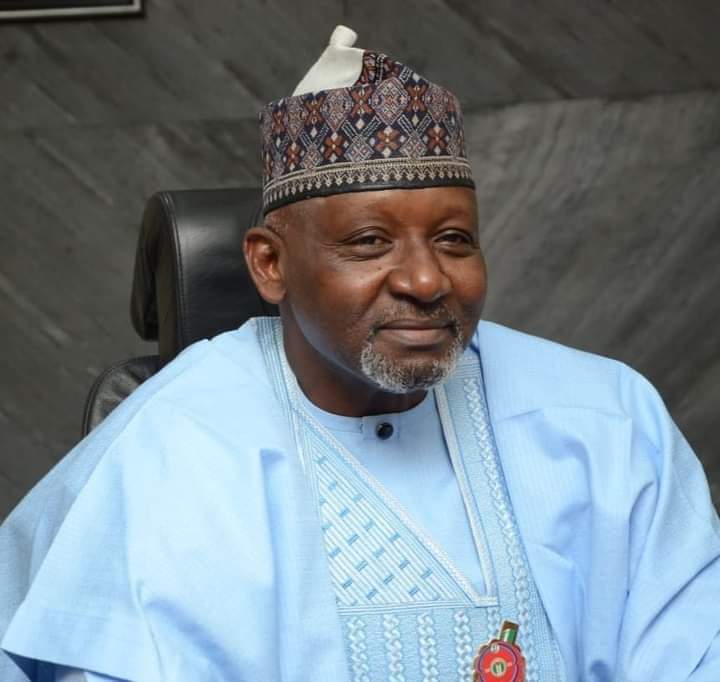The Nigerian Minister of Transportation, Mu’azu Jaji Sambo, was recently reported by the media to be calling for the “unbundling of the Nigerian Railway Corporation (NRC)”. Such a step, according to the minister, was “in line with the vision and objectives of government’s current reforms in the transportation sector.” He added that, “As it is presently constituted, the NRC cannot operate optimally, thus necessary reforms and unbundling have become imperative”.
Unfortunately, the reports did not expatiate on what Minister Sambo meant by “unbundling of the Nigerian Railway Corporation”, neither did he allow us a peek into his ministerial insight into why the NRC “cannot operate optimally” in its present state.
Unbundling railway will not lead to job losses – Minister
Ahead of tomorrow’s polls: Security operatives on red alert in states
Because there wasn’t clarity of perspective from Sambo, we can only take conjectural flights into what might be cooking behind ministerial walls. Given what’s been done in the past by successive Nigerian governments from the mid-1980s, since the ideology of privatisation took over the public space, “unbundling” can only mean an effort in privatisation of the Nigerian railways.
One of the sad aspects of the Nigerian system is the manner that privatisation has been turned into the one-size-fits-all pill for all issues of our public space. This is in spite of the glaring failure of the sale of public enterprises in Nigeria. But this is an ideological standpoint.
The rulers of our country were mass-converted to the “ideology-religion” of neoliberalism, and they became blinded to objective reality. For them, every asset means a thing, only when they’re sold; this is in spite of the mass failure of their privatisation policy since it commenced from the mid-1980s.
Let us try to unbundle this “unbundling of Nigerian Railway”, that Sambo is preaching. I don’t know who the advisers for this plan are, but privatised railways haven’t been a success story around the world.
One of the poster cases of railway privatisation around the world was the Tory privatisation of British Rail which commenced in the 1990s. The listed benefits for privatisation included improved customer service and more investment. The high priests of the process frowned at higher fares, lower punctuality, and state subsidy of the system.
In the years since they were privatised, its protagonists have harped on such benefits as improved efficiency, services, and operations, while drawbacks noted have included the inability of privatised railways to provide affordable services, the casualisation of jobs, loss of revenue to the state in the form of dividends.
Those who study privatised railway systems have similarly noticed the high chances of bribery and corruption that usually accompany privatisation; the expansion of the gaps between the rich and the poor; the emergence of business models imposed by private firms, often to the detriment of the mass of consumers because of the centrality of the profit motive. There is also a drawback noticed in pricing as the private firms are price takers.
Then there emerges a “natural monopoly”, and a neglect of the public interest and this is also related to difficulty of regulation of the private companies, along with a fragmentation in the industry and finally, the regime of “short termism” among the companies.
Since privatisation, Britain has witnessed major rail crashes such as Southall rail crash in 1977; Ladbroke Grove rail crash of 1999; Hatfield rail crash in 2000; the Stonehaven crash of the same year that killed three people; and the Potters Bar rail crash recorded in 2002.
Clearly, the Railway Act of 1993 dismantled the integrated national railway system in Britain. The apostles of privatisation emphasised the increase in passenger journey numbers which clearly grew after the process was completed. There’s a deep irony that the profit motive survives only because it is dependent on various types of public subsidy, which had been one of the reasons asserted against a state run system in the first place.
Overall, the grand benefits used to justify privatisation of British rail never materialised. Today, fares are much higher; there’s infrastructure failure; and train delays are rampant; the train franchising process isn’t working efficiently; and these have deepened passenger dissatisfaction.
British Rail, before privatisation, was a fully vertically integrated industry. BR was responsible for virtually every aspect of the railway system. And in that period, it was said to be one of the most financially successful railways in Europe. In 1994, subsidy from government was only 15 per cent of revenue, thus making it the least subsidised railways in Europe.
Privatisation fragmented the industry, with the emergence of over 100 different companies that resulted in what was termed “a complex contractual web of operational transactions between different industry players – with profit mark-up being extracted at every stage,” according to John Stittle of the University of Essex, whose article “Nationalising Britain’s railways is the only way to fix chronic problems – here’s why”, was published on January 16, 2018.
Given this dysfunctional privatisation, the call for re-nationalisation of British Rail has become very popular in the United Kingdom. Renationalisation is now seen as the key to end the operational and structural absurdities that privatisation gave birth to in the British railway system.
The example of the privatisation of British Rail certainly has been one that the Indians have noted very closely, and has been at the heart of decisions taken to protect the national public service railway system. They argued in India that privatisation would make the railways profit-based, and gradually become unavailable to or out of reach of the poor in Indian society.
The Indian Railway connects small and large communities of the country. Privatisation will make the trains increasingly inaccessible in less profitable or remote rural communities, since private firms are unlikely to generate profits from such locations.
Concluded on www.dailytrust.com
Kawu, PhD, FNGE, is a broadcaster, journalist, and political scientist

 Join Daily Trust WhatsApp Community For Quick Access To News and Happenings Around You.
Join Daily Trust WhatsApp Community For Quick Access To News and Happenings Around You.


